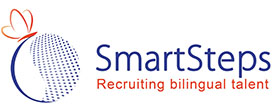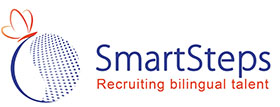-
Inappropriate dress: check out the company website, see how people are dressed and dress slightly smarter than they do.
- Handshake: it’s not so common to shake hands in the post Covid era, however, but it’s extremely common at interview. A firm handshake is necessary. Limp handshakes won’t do. If you suffer from sweaty palms, take some cooling/cleansing hand gel for fresh hands.
- firm hand shake, take some cooling hand gel
- Complaining: complaining and negativity are a massive put off. In interview, please remember “less said the better”. A complaint might not be reflective of you as a person, but the recruiter doesn’t know you. A recruiter is not a counsellor, someone with whom you can share bad professional experiences. If you can’t avoid the subject, transform the negative into a learning experience. Keep this part of the interview short, in the mind of the recruiter it shouldn’t be allowed to form the main take away post-interview. Get ideas from your consultant about how to answer difficult or uncomfortable questions.
- less said the better, turn a negative into to learning experience
- Over confidence: it’s often difficult to get the balance right from being naturally confident to appearing arrogant. Apart from the fact no one wants to work with arrogant colleagues, if the job is too easy you will get bored and won’t stay long, even if the salary is motivating. There is always some room for personal growth even if it is just adjusting to how things are done and your new team within your future company.
- there is always room for personal growth
- No questions at the end of the interview: asking questions at the end of the interview shows that you’ve been listening and engaged. Suggested questions that have likely not been covered would be 1) who is the best performer in this job and why? 2) What is the company culture? Or simply 3) Is there anything else you’d like to know about me?
- find a general question, “would you like to know anything else about me”
- Questions about benefits: do not ask questions about benefits, salary, remote working, RTT, sick pay. Your consultant will have the answer to these questions so you should have been forewarned. It’s important to remember to sell yourself first and negotiate afterwards. The biggest majority of clients expect candidates to return for at least a second interview. The first interview is about getting to know you. It’s definitely not the moment for in-depth discussion of what’s on offer financially speaking. When employers ask for your salary expectations you can consider it a ball park figure, the details/negotiation comes at a later stage.
- At first interview sell yourself, negotiations happen later
- Talking too much: be succinct, how does your experience link to the job. if there’s a silent moment, don’t fill the void by rambling.
- Don’t ramble and don’t be afraid of silence
- Under preparation: you don’t have to spend hours preparing, but you do have to have a minimum of information about the company gleaned from the company website.
- If you haven’t prepared, prepare to fail.
- Arriving late or early: arriving late is obviously a no no unless you’ve got a valid reason. Forewarn the client, pass by the switchboard. Or telephone your consultant. We suggest you arrive 10 minutes early. There’s often time lost at reception.
- Arrive slightly early thus leaving time for you to refresh yourself
- Check your tech: First interviews are very often by video. Make sure you’ve got the appropriate software downloaded on your computer and you’ve done a quick check prior to interview. Many recruiters have allocated time slots and won’t be able to extend the interview if there are outstanding matters to be discussed.
- make tech work before interview
Conclusion
Remember attending interview is time wasted if it isn’t prepared properly. Our advice is always to have quality ‘over quantity’ applications and it starts with the CV and continues through to the end via interviews. Try to keep in mind that there are really only three interview questions. Every single question comes from one of the three points: Do I like you? Can you do the job? How long will you stay? Don’t forget to call your consultant post-interview with your feedback.











